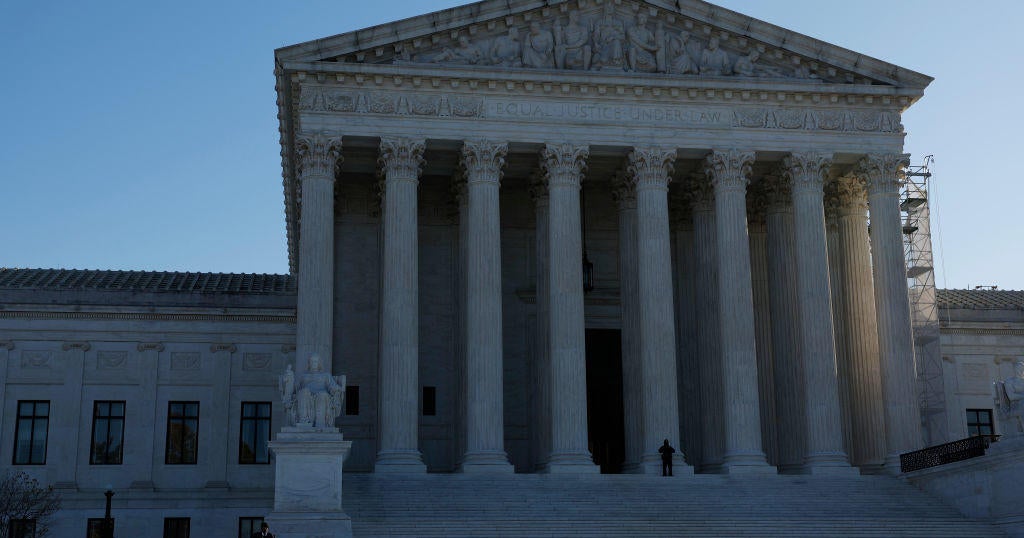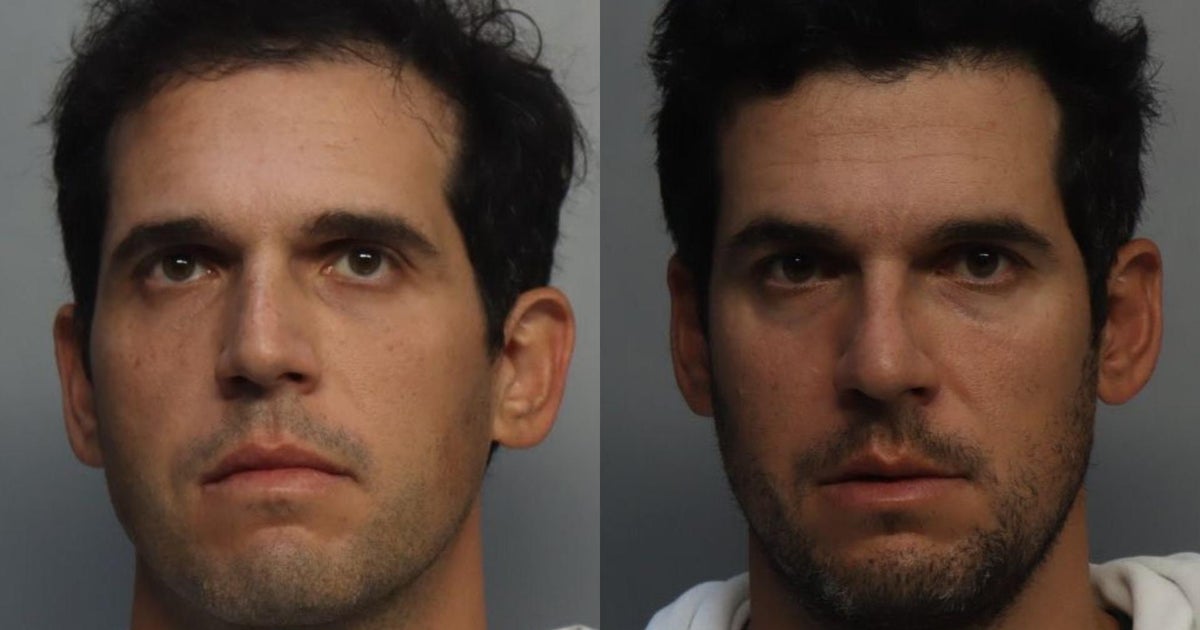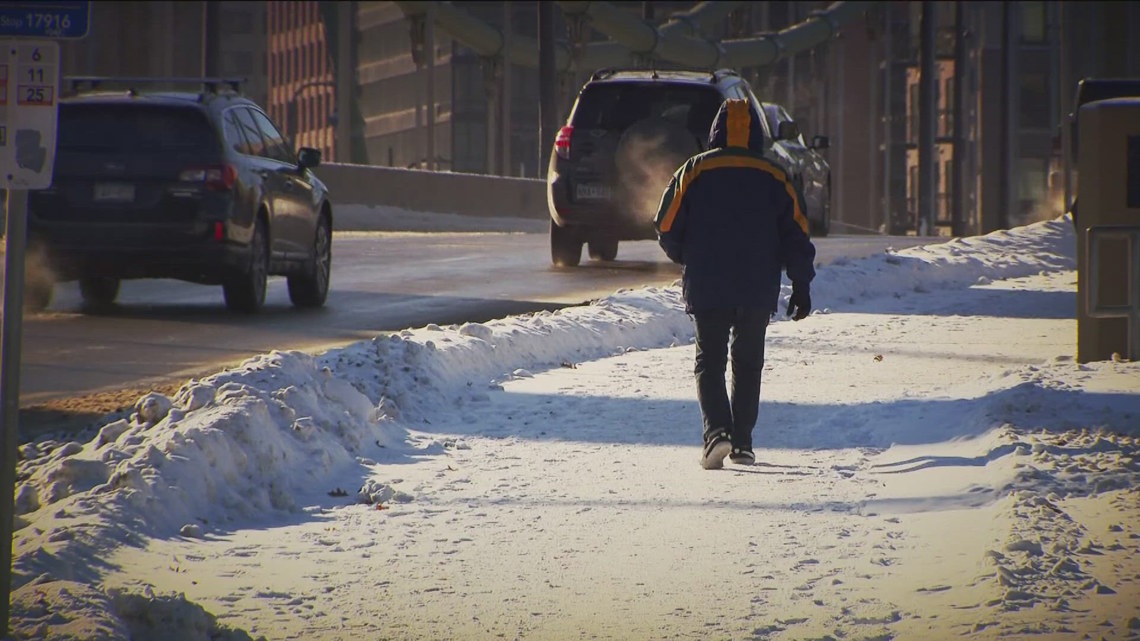CBS News
One first-time homebuyer has searched for 3 years for a house amid real estate “perfect storm”

Shruti Chauhan, 45, knows all too well how brutal the real estate market can be for a first-time homebuyer — she’s been searching for her first house for almost three years, putting up to three hours a day into the hunt and making over 30 bids.
“Go home, crunch the numbers, whether this is the right fit or not, both in terms of finances and whether you see yourself there,” Chauhan, a consultant who lives in New Jersey, told CBS News.
Still, this isn’t where Chauhan expected to be when she first embarked on her search for a home — without a house after years of fruitless hunting. She offered $50,000 over asking price for one home, but lost out when another bidder offered $5,000 more. She had one offer accepted, only for the house to fail inspection.
“I always thought that, yes, there will be a time where I’ll get a home. Never happened,” she said.
Chauhan exemplifies the often demoralizing financial and other challenges confronting many first-time homebuyers, who are facing not only record home prices but also mortgage rates that are still more than double their pandemic-era lows. Many people trying to put their foot on the property ladder also find themselves bidding against current homeowners who have equity in their properties, giving them more financial power to outbid competitors.
As a result, first-time homebuyers now make up just 32% of purchasers, down from almost 50% of the market in 2009 and near a historic low.
It’s “the perfect storm, which, of course, is affecting the first-time homebuyer the absolute worst,” said Stacy Esser, the founder of SEG Realty.
How would a Fed rate cut impact mortgage rates?
Homebuyers recently have gotten some relief on borrowing costs, with the average interest rate on a conventional 30-year mortgage sliding to 6.29% earlier this month. That marks the lowest level since February 2023, as lenders ratchet their rates lower ahead of an expected Federal Reserve rate cut starting on September 18 in what experts say is likely to be a series of moves to ease borrowing costs.
By May 2025, the Fed’s benchmark rate could be as low as 3%, according to economists polled by FactSet.
Yet there’s a very real downside to lower rates, said Esser of SEG Realty.
“It’s going to add another level of hardship onto the first-time homebuyer because what’ll happen is more people will jump back in, so you’re going to see more competition, and more competition means prices are going to rise,” she said.
While it can be emotionally draining to strike out on buying your first home, it’s important to keep one’s financial goals in perspective, CBS News business analyst Jill Schlesinger advises.
“There is a psychic benefit that people have from owning a home, and I understand that, but it never makes sense for you to buy a house and not be able to fund your own retirement,” Schlesinger said. “Try not to make this the most important thing, my forever home. These are things that can really be emotional traps.”
There are also some benefits to renting, Schlesinger added. For one, renting may provide more financial flexibility, since it means you don’t have to pay for the upkeep of a home and other costs. And that could help free up some money to invest in your 401(k).
As for Chauhan, she said she hasn’t given up on finding her dream home.
“Yes, this is the year,” she said.

CBS News
Supreme Court takes up South Carolina’s effort to defund Planned Parenthood

Washington — The Supreme Court on Wednesday agreed to consider South Carolina health department’s effort to cut off funding from Planned Parenthood because it performs abortions, wading into another dispute over access to the procedure in the wake of its reversal of Roe v. Wade.
The case, known as Kerr v. Edwards, stems from the state’s decision in 2018 to end Planned Parenthood South Atlantic’s participation in its Medicaid program. Gov. Henry McMaster, a Republican, directed the South Carolina Department of Health and Human Services to deem abortion clinics unqualified to provide family planning services and end their Medicaid agreements.
Planned Parenthood operates two facilities in the state, one in Charleston and the other in Columbia, and provides hundreds of Medicaid patients with services like physicals, cancer and other health screenings, pregnancy testing and contraception. Federal law prohibits Medicaid from paying for abortions except in cases of rape or incest, or to save the life of the mother.
Planned Parenthood and one of its patients, Julie Edwards, sued the state, arguing that cutting off its funding violated a provision of the Medicaid Act that gives beneficiaries the right to choose their provider.
A federal district court blocked South Carolina from ending Planned Parenthood’s participation in its Medicaid program, and a U.S. appeals court upheld that decision, finding that Edwards could sue the state to enforce the Medicaid Act’s free-choice-of-provider requirement.
The legal battle has already been before the Supreme Court in the past, with the high court last year ordering additional proceedings after deciding in a separate case that nursing home residents could sue their state-owned health care facility over alleged violations of civil rights.
After reconsidering its earlier decision, the three-judge appeals court panel ruled unanimously in March that Edwards’ lawsuit against the state could go forward and said South Carolina couldn’t strip Planned Parenthood of state Medicaid funds.
“This case is, and always has been, about whether Congress conferred an individually enforceable right for Medicaid beneficiaries to freely choose their healthcare provider. Preserving access to Planned Parenthood and other providers means preserving an affordable choice and quality care for an untold number of mothers and infants in South Carolina,” Judge Harvie Wilkinson wrote for the 4th Circuit panel.
South Carolina officials asked the Supreme Court to review that decision, marking the third time the case has been before the justices. The justices agreed to take up the question of whether “the Medicaid Act’s any-qualified provider provision unambiguously confers a private right upon a Medicaid beneficiary to choose a specific provider.”
South Carolina is among the more than two dozen that have passed laws restricting access to abortion in the wake of the Supreme Court’s June 2022 decision reversing Roe v. Wade. In South Carolina, abortion is outlawed after six weeks of pregnancy with some exceptions.
Several states have also enacted laws blocking Planned Parenthood from receiving Medicaid funding, including Arkansas, Missouri, Mississippi and Texas.
CBS News
Lithium battery fires on U.S. flights now occur nearly twice a week, according to new FAA data

As millions prepare to fly for the holidays, the Federal Aviation Administration is warning travelers about a hidden danger in their luggage: lithium-ion batteries. Found in everyday devices like laptops, tablets and even electric toothbrushes, these batteries can catch fire if they overheat or are damaged.
Last July, panic erupted on an American Airlines flight from San Francisco to Miami after a laptop battery in a carry-on bag ignited.
“It was absolute chaos. It truly felt like every man for themselves. And it was terrifying,” said Shilpa Patel, a passenger on the flight. “I don’t know if we’re going to explode. All I know is I need to get out and I need to survive.”
FAA data shows that lithium battery fires on U.S. flights have risen 388% since 2015, now occurring nearly twice a week.
“Any fire at 30,000 feet is unacceptable,” said David Wroth of UL Standards & Engagement, a safety research organization.
A survey of more than 800 flight attendants conducted by UL found that 87% are concerned about lithium battery risks on airplanes, and more than a third believe airlines should do more to ensure passenger safety. While the FAA requires airlines to include general safety information in preflight announcements, those warnings often don’t address the specific risk of battery fires.
“It’s a balance we probably need to do a better job striking with the airlines,” said Ben Supko, who oversees hazardous materials safety for the FAA. “Passengers don’t fully understand how serious the risk is.”
Supko said passengers need to monitor devices during a flight and immediately notifying the crew if a device becomes warm, discolors, or bulges. Passengers are also warned not to pack lithium batteries in checked luggage, as fires in the cargo hold are harder to extinguish.
“When you don’t know what’s going to happen, you act erratically,” said Patel. “It costs us nothing just to say, ‘Hey, the reason why we’re so serious about this is because it could be really dangerous. It could catch fire.'”
The UL survey also found that one in four passengers admits to packing lithium batteries in their checked bags. It is a dangerous practice for one reason in particular: It would be even harder to put out a fire in the plane’s cargo hold.
CBS News reached out to American Airlines regarding the incident at the San Francisco airport and potential updates to its safety announcements. The airline did not address the question directly but stated that its flight attendants receive thorough and ongoing training to handle emergencies onboard.
CBS News
Eye Opener: Update on possible motives in Wisconsin school shooting

Watch CBS News
Be the first to know
Get browser notifications for breaking news, live events, and exclusive reporting.









